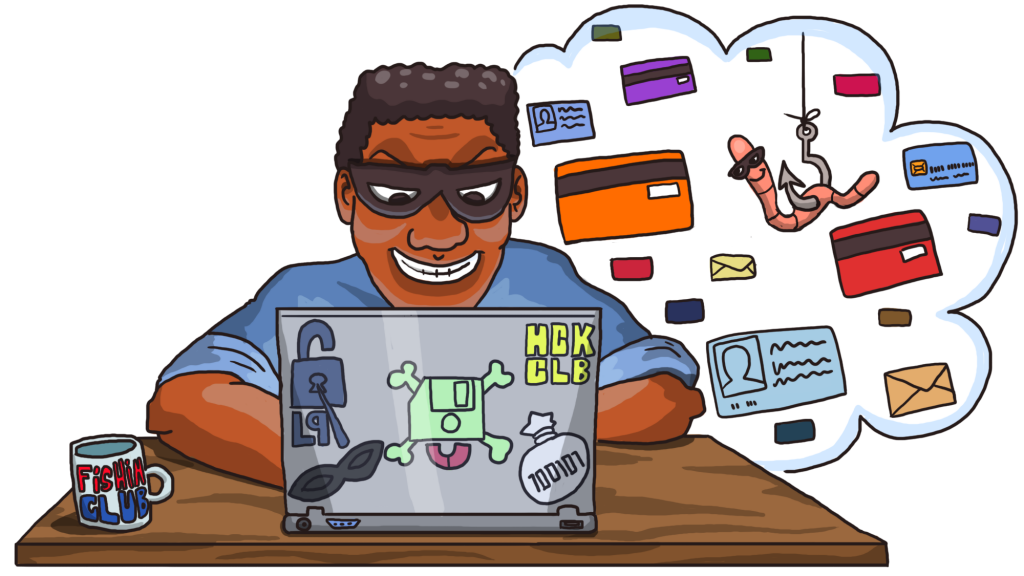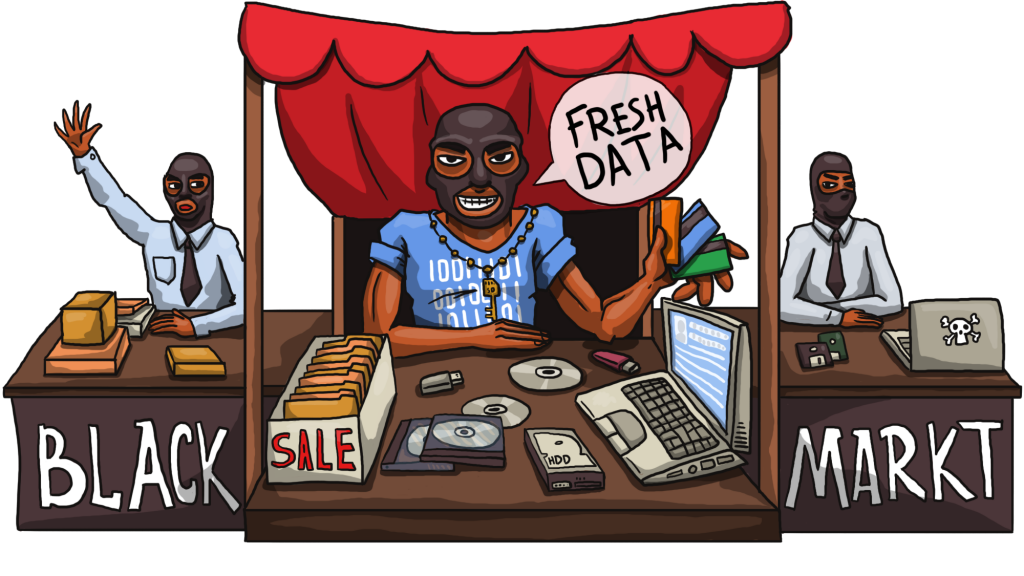

With advancements in access, there is also a marked rise in incidence of cybercrime such as fraud, hacking and identity theft. Cyber threats are causing economic losses for Uganda valued at UGX22 billion annually, as reported in the Africa Cyber Security Report 2016. The reasons given for the increase in the cost of cybercrime is due to increased sophistication of local cyber criminals and a lack of practical regulatory guidance from the government and industry stakeholders. Currently, the East African Community (EAC) has no specific legislation on data protection and privacy. There is only a framework for Cyber laws which was developed in 2008.
Security speaks to how guarded or private your personal information is. Personal information ranges from passwords to credit card information to personal biodata. Is it secure for you to provide this information on internet platforms? Do you know where it is stored or who has access to it?
Security is a big concern as your personal information can be used for malicious activities like impersonation, fraud, identity theft and many more privacy violations.
A big security issue in East Africa is Phishing from internet spammers who send emails purporting to be from reputable sources in order to induce individuals to reveal personal information, such as passwords and credit card numbers.

Is your data on the black market?: Data Protection
As companies such as Facebook continue to amass massive quantities of our data, it is also worth considering the implications of data collected by governments. Already, we know that countries such as India have started collect vast amounts of sensitive citizen information to track everything from job performance by civil servants to maintaining a bank account or phone connection. Similarly, China is using big data to rank their citizens going so far as to give them “social credit scores”. If you have a poor score, you might not even be allowed to use services such as public transport or to even leave the country. Well, what if you have a difference of opinion to how the government runs the country, or wish to report a corrupt official? You guessed it, your score is likely to go down! What does this then mean for human rights such as privacy, expression, movement and so on? For your very civic participation?
Not just considering governments, the data policies of private companies can also have major impact of political outcomes. In the United States in 2016 and here in Kenya in 2017, we were made fully aware that data can have real-world influence on our behaviors, political inclinations and even our political systems. Data protection is vital to maintaining active citizen participation and democratic values.
What’s in a Fingerprint? Lifelong Tracking and Profiling
‘Biometrics’ is the measurement and analysis of people’s physical and behavioral characteristics. This could be your fingerprints, voice, face, retina and iris patterns, hand geometry, gait, earlobes or DNA profiles. Your biometric data is unique to you, and only you. This information is used both to “identify” you as well as to “verify” your identity. Biometric information can thus protect you and ease processes that involve proving your identity such as voting, accessing public services etc.
Biometrics are often used by our governments for national IDs, voter registration and at immigration. In 2016,the Electoral Commission of Uganda used a biometric voter authentication technology solution to validates the identity of voters prior to ballot casting. Biometrics are also being used by humanitarian organizations for registering refugee registration, and also private companies such as financial institutions.
So what’s the problem? Without appropriate and stringent data protection systems in place as well as fail-proof technological platforms, your information could easily fall into the wrong hands. This can lead to fraud, misidentification and even exclusion from civic participation. Biometric databases can also allow governments, or even private organizations, to track your every move, impinging on your very right to privacy.

Thoughts: Are Biometrics our Friend or Foe in the Future?
What is Cyberharassment?
An increasingly worrying trend amongst cybercrimes is online violence against women. More women in Uganda are online now than ever before. Private information, such as photos and videos, are leaked onto social media without women’s consent. Women are often victims of harassment, stalking and cyberbullying but the extent of this violence is unknown as most cases go unreported. In a recent U.N. report, cyber violence was found to be just as damaging to women as physical violence.
There are numerous kinds of cybercrime, with women oftentimes bearing the brunt of certain acts such as cyber harassment, stalking and release of private information without consent. Women in positions of power and influence, such as MPs, news reporters and journalists, are constant victims of these online attacks in an attempt to curb their viewpoints and opinions in matters of civic engagement and participation. Women often resort to ignoring the comments, thus censoring themselves from public debates, or by leaving social media altogether, resulting in a win for the attackers.

Cyber Bullying and Harassment
Cyberbullying is the use of electronic communication to bully a person, typically by sending messages of an intimidating or threatening nature.This can include blackmail, threats of violence, sexual messages with the aim of discreting, defaming or subduing the victim.
Cyberstalking
Cyberstalking is when an individual uses the Internet to systematically or repeatedly harass, stalk or threaten someone. This crime can be perpetrated through email, social media, chat rooms, instant messaging clients and any other online medium. Cyberstalking can also occur in conjunction with the more traditional form of cyberbullying and offline harassment.
Sharing Private Data on Public Platforms without Consent
This is essentially obtaining and disseminating private information such as photographs or videos, without consent, usually for purposes of defamation. A growing example of this is revenge porn, whereby naked pictures of women are leaked onto social media and oftentimes, the victims are attacked, shamed and made to apologize.
Identity Theft
Identity theft is a crime in which an imposter obtains key pieces of personally identifiable information, such as a National ID number or driver’s license numbers, in order to impersonate someone else for financial gain, or similar personal benefit on behalf of their victim.
Hate Speech
Hate Speech is any communication with the intent to attack a person based on any identifying characteristics such as their race, religion, gender, opinions etc.
Doxxing
Doxxing is search for and publishing of private or identifying information about a particular individual on the Internet, typically with malicious intent. This information is typically meant for public consumption to target and contact a victim through social media, chat rooms, and perhaps even in person.
Trolling
Trolling is the act of sowing discord on the Internet by starting arguments or upsetting people, by posting inflammatory or off-topic messages in an online community, usually on social media or a similar forum, with the intent of provoking readers into an emotional response or of otherwise disrupting normal, on-topic discussion.
Hacking
Hacking is the unauthorized intrusion into a computer or a network, and is the practice of modifying or altering computer software and hardware to accomplish a goal that is considered to be outside of the creator’s original objective. Hacking can be done to access or steal information such as passwords, data, documents etc.
